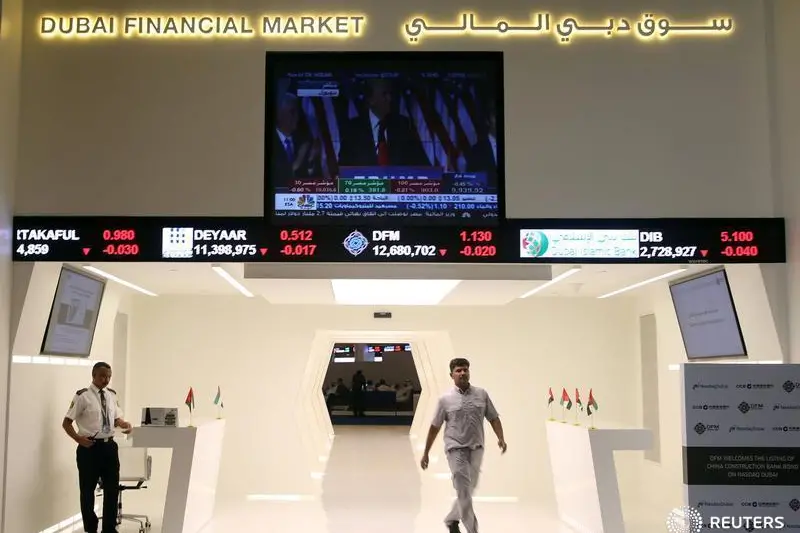PHOTO
Shares in Islamic Arab Insurance Company (Salama) and Deyaar Development outperformed the rest of the market in Dubai during Monday’s session, rising 12.04 percent and 5.92 percent respectively.
Salama was the most heavily-traded stock in terms of volumes, attracting nearly half of the traded volumes on the exchange, while Deyaar was the second-most traded stock in unusually heavy trade.
Deyaar’s stock price ended the session at 0.447 dirhams, rising above the 100-day average for the first time since March 2018.
“There isn’t any news on Deyaar and based on market movement, it seems that speculators are back for some quick trades,” Issam Kassabieh, senior financial analyst and head of research at Menacorp Finance said.
“The company hasn’t shown any growth in its first half, especially not from its core business,” he told Zawya by email.
In July, the company had announced a 2.6 percent drop in first half net profit for 2018 to 65.2 million United Arab Emirates dirhams ($17.8 million), from 67 million dirhams last year. Revenues in the first half of 2018 were also marginally lower (314 million dirhams, versus 316 million dirhams year ago).
Salama's stock has surged more than 27 percent during the first week of September, after direct deals or block trades were executed on 370.7 million worth of shares at 0.42 dirhams. (Click here for the full story)
“The heavy buying on Salama has been triggered by the direct deals that took place on September 6, which saw the Abu Dhabi Financial Group swoop in for a 20 percent stake in the company, along with Goldilocks Investment Company (9.92 percent stake),” Menacorp’s Kassabieh added.
“This was a clear signal to investors that there is value to be unlocked within the Islamic Insurance Company as regional insurance markets grow in size and talks about expansions through M&As increase,” he added.
Salama’s first half net profit for 2018 stood at over 31.8 million dirhams, compared to 7.7 million dirhams for the same period last year.
“Salama’s first half financials were promising as they showed profits increasing by four times compared to the first half of 2017 and this could potentially result in dividend payments for 2018 if the growth persists,” Kassabieh added.
Shares of Salama appear to be overbought, according to the Relative Strength Index (RSI 14). The index is a measurement between zero and 100. Traditionally the RSI is considered overbought when above 70 and oversold when below 30.
Data from Thomson Reuters’ Eikon shows that Salama has an RSI of 91.489.
Dubai’s index ended the day 0.24 percent higher as a result of the surge in Deyaar and Salama shares.
Elsewhere in the region, Qatar’s index added 1.22 percent for the day, Oman’s index gained 0.73 percent, Bahrain’s index retreated 0.06 percent, and Kuwait’s index dropped 0.04 percent.
At 3:17 pm GST, Saudi Arabia’s index was trading 0.53 percent lower and Egypt’s index was 0.66 percent lower.
(Writing by Gerard Aoun; Editing by Michael Fahy)
(gerard.aoun@thomsonreuters.com)
Our Standards: The Thomson Reuters Trust Principles
Disclaimer: This article is provided for informational purposes only. The content does not provide tax, legal or investment advice or opinion regarding the suitability, value or profitability of any particular security, portfolio or investment strategy. Read our full disclaimer policy here.
© ZAWYA 2018





















